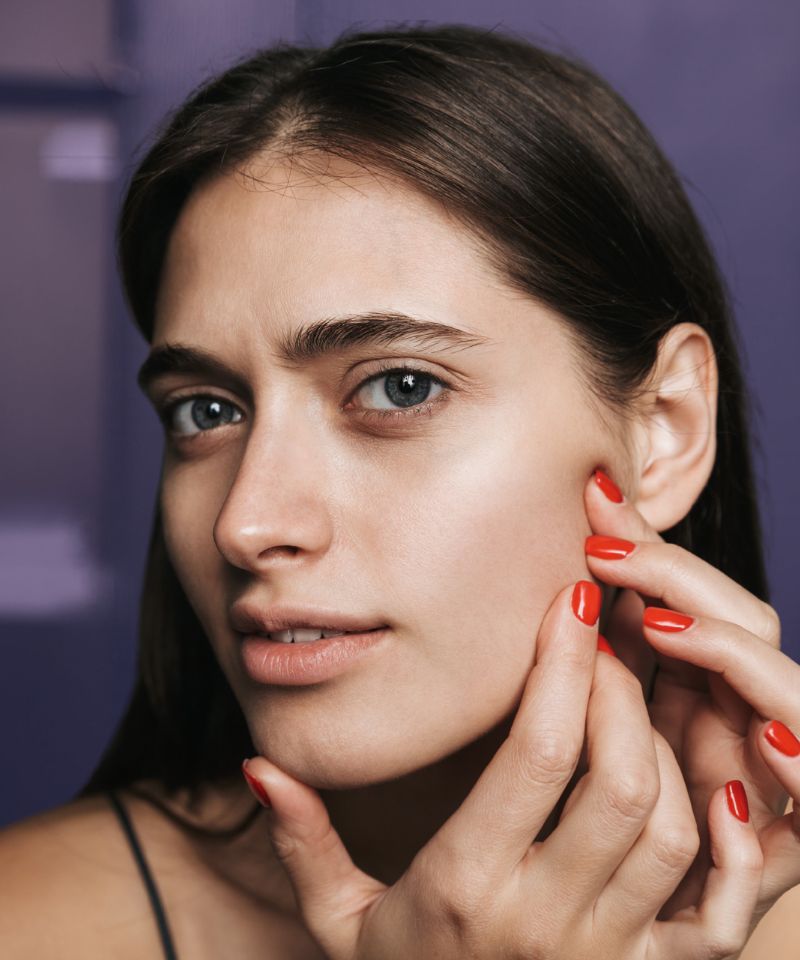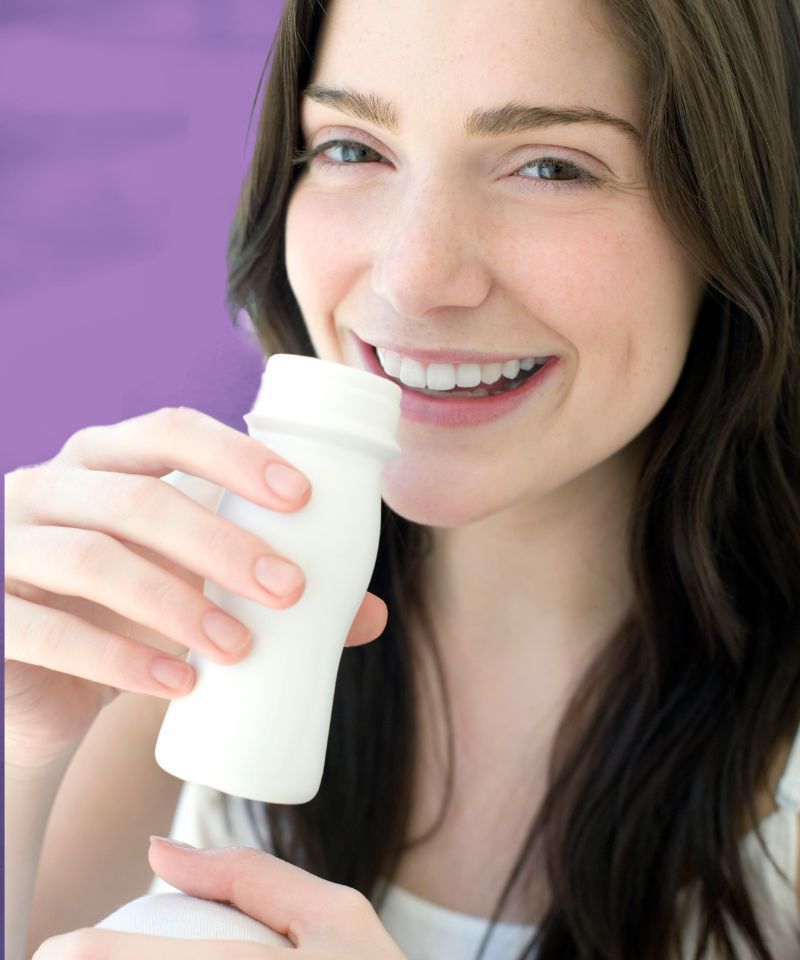Acne is more than just a skin condition; it’s often a mirror reflecting our internal health and the balance of our microbiome.
In the quest for clear skin, treatments have ranged from topical creams to antibiotics, yet one promising solution lies within the very core of our being—probiotics.
But how effective are these microscopic allies in the battle against acne?
Let’s delve into probiotics to uncover their potential as an acne treatment.

What Are Probiotics?
Probiotics are live microorganisms, often called “good” or “friendly” bacteria, which are a part of our gut, mucous membranes, and even skin.
These microorganisms help maintain a healthy balance in our bodies by supporting digestion (breaking down food and absorbing nutrients), boosting the immune system (fighting off harmful bacteria and viruses), and protecting the skin from external pathogens it faces when we are exposed to the environment.
In other words, probiotics help maintain a harmonious and healthy relationship between our body and its surrounding ecosystem and protect us from unwanted invaders.
The Benefits of Probiotics for the Skin
Our skin is home to a diverse community of microorganisms known as the skin microbiome.
Just like the gut, the skin’s health depends significantly on the balance of these microorganisms.
Probiotics help maintain this balance, offering several benefits:
Balancing the Skin Microbiome:
By enhancing the diversity and number of beneficial microbes, probiotics can outcompete harmful bacteria, reducing bacterial skin conditions.
Strengthening the Skin Barrier:
Probiotics improve the skin’s ability to act as a barrier against pollutants, allergens, and other irritants present in the environment.
Anti-Inflammatory Effect:
Probiotics can reduce skin inflammation by producing anti-inflammatory substances and influencing the behavior of T-cells, a type of white blood cell involved in immune responses, such as inflammation, as a result of fighting against an overgrowth of a foreign pathogen.
Are Probiotics Good for Acne?

The promising connection between probiotics and acne reduction has been proven by numerous studies.
Probiotics have demonstrated the potential to mitigate acne severity via various pathways, including the modulation of Insulin-like Growth Factor 1 (IGF-1), a key player in acne development.
Consuming probiotics may, therefore, offer a natural, effective solution for individuals seeking to manage acne.
Here are a few ways probiotics may help with acne:
Inhibit Acne-Causing Bacteria:
Probiotics such as Streptococcus salivarius have been found to hinder the growth of acne-causing bacteria by producing substances called bacteriocins.
Strengthen The Skin Barrier:
Probiotics, such as Streptococcus thermophiles, have been shown to increase the production of ceramides, which help enhance the skin’s barrier function and boost its antimicrobial properties against acne-causing bacteria.
Reduce Inflammation:
Inflammation plays a significant role in acne development, and probiotics have been found to reduce inflammation by producing anti-inflammatory substances, inhibiting the production of pro-inflammatory cytokines, and controlling the immune response to inflammation.
Inhibit Sebum Production:
Probiotics have also been found to reduce acne by potentially inhibiting substance P, an amino acid neuropeptide that amplifies sebum production, thus decreasing pore clogging.
Balance Hormones:
Insulin-like growth factor 1 (IGF-1), which can be influenced by certain foods or probiotics, has been linked to acne due to its ability to cause internal inflammation.
Therefore, low-fiber carbohydrates and dairy can increase the risk of acne by raising IGF-1 levels, while the probiotic Lactobacillus, when used in milk fermentation, can significantly lower these levels.
This suggests that probiotics may help control acne by reducing systemic IGF-1 levels.
The Side Effects of Probiotics
While probiotics are generally considered safe and beneficial for most people, they can cause side effects in some individuals, especially if overused.
Some potential side effects of probiotics may include digestive discomfort, such as diarrhea, constipation, or stomach pain, particularly when first starting probiotic supplementation.
Some people may also experience increased gas or bloating.
More rarely, side effects can include headaches, allergic reactions, such as rashes or mild itching, and a potential risk of antibiotic resistance or infection.
However, these symptoms typically subside as the body adjusts to the probiotics.
How to Include More Probiotics in Your Daily Routine?

Incorporating probiotics into your lifestyle can significantly impact your skin health, especially when dealing with acne.
Here’s how you can seamlessly add more probiotics to your daily routine:
Diet
The foods you eat can play a pivotal role in enriching your body with beneficial bacteria.
Here are some probiotic-rich foods to include in your daily menu:
Yogurt: Yogurt is one of the most well-known sources of probiotics, particularly strains like Lactobacillus bulgaricus and Streptococcus thermophilus, which can help balance the skin microbiome. Opt for plain, unsweetened varieties to avoid added sugars that can negatively affect gut health.
Kefir: A fermented milk drink similar to yogurt but with a thinner consistency. Kefir contains a wider variety of bacterial cultures and yeast, making it a powerful probiotic source.
Miso: This Japanese seasoning, made by fermenting soybeans with salt and a fungus called Aspergillus oryzae, offers strains of bacteria beneficial for the gut.
Kimchi: A spicy Korean side dish made from fermented vegetables (most commonly cabbage), providing Lactobacillus kimchii, among other probiotics. It’s also rich in vitamins and minerals that can further improve gut, immune, and skin health.
Supplements
If your diet does not provide enough probiotics, supplements can be an effective alternative:
When buying probiotic supplements, look for options that specify the strains of bacteria they contain and their CFU (colony-forming units) count, and ensure they have been tested for purity and potency.
Diverse strains can offer broader skin and health benefits.
Skincare Products
Incorporating probiotic-infused products into your skincare routine can directly benefit the skin’s surface by promoting a balanced microbiome.
Here are some specific probiotics and ingredients to look for:
Lactic Acid: Lactobacillus, a bacteria that produces lactic acid, helps maintain the skin’s pH balance, gently exfoliates to remove dead skin cells, and supports the skin’s natural barrier. Lactic acid is also known for its hydrating properties.
Bifidobacterium: Found in some skincare products, Bifidobacterium can help strengthen the skin’s barrier function and protect against harmful bacteria. It’s beneficial for reducing skin sensitivity and irritation.
Streptococcus Thermophilous: This probiotic has been shown to increase the skin’s production of ceramides, which are lipids that help retain moisture and fortify the skin’s barrier, preventing dryness and irritation.
Fermented Extracts: Ingredients like fermented rice water, sea kelp, or soy are rich in antioxidants, vitamins, and minerals. Fermentation breaks these ingredients into smaller molecules, making it easier for the skin to absorb their nutrients. They can enhance skin brightness, hydration, and overall health.
Frequently Asked Questions
Why Is My Gut Causing Acne?
Acne can often be a reflection of an imbalanced gut microbiome, where the presence of harmful bacteria triggers inflammation that shows on the skin as breakouts.
Probiotics help restore the balance of good bacteria, improving digestion and reducing systemic inflammation that can manifest as acne.
How Long Does it Take for Probiotics to Help Acne?
The time it takes for probiotics to impact acne can vary, but many individuals may start to notice improvements in their skin within a few weeks to a couple of months of consistent use of probiotics.
Which Probiotic is Best for Acne?
Lactobacillus plantarum and Lactobacillus paracasei are strains that have shown evidence of their effectiveness in soothing skin inflammation and relieving acne due to their anti-inflammatory properties.

My name is Simone and I am a certified skin specialist. I created this website to teach my readers how to take great care of their skin and I also like to occasionally share my honest opinions on skincare products I’ve tried. You can learn more about me here.
